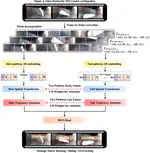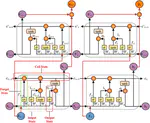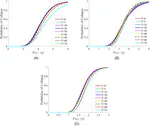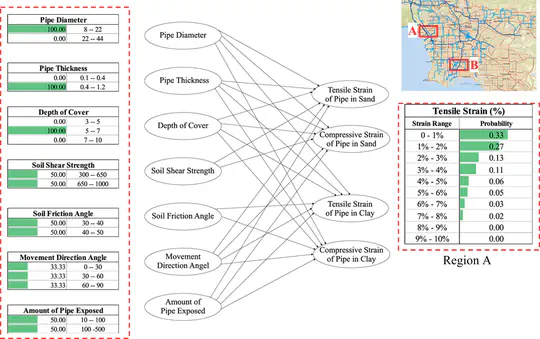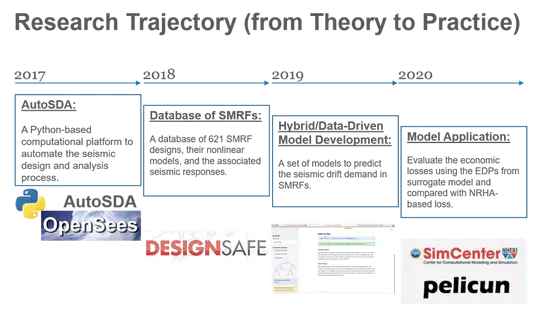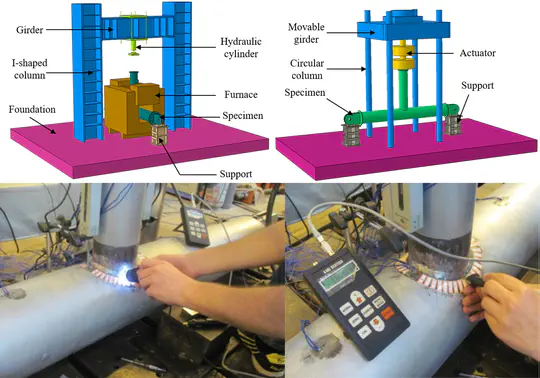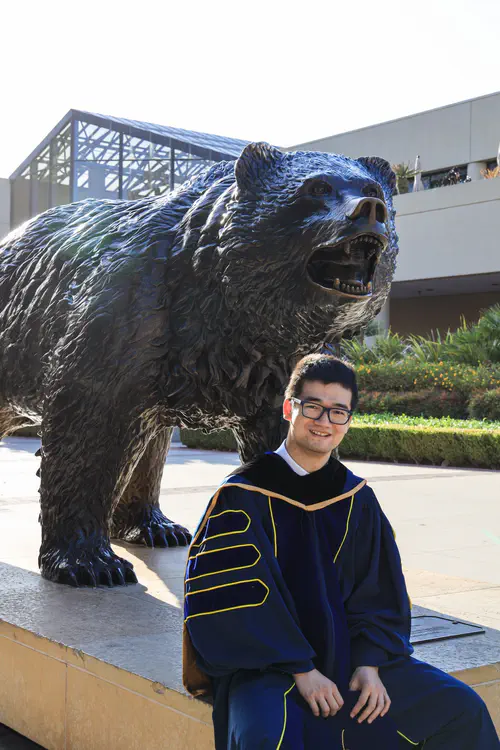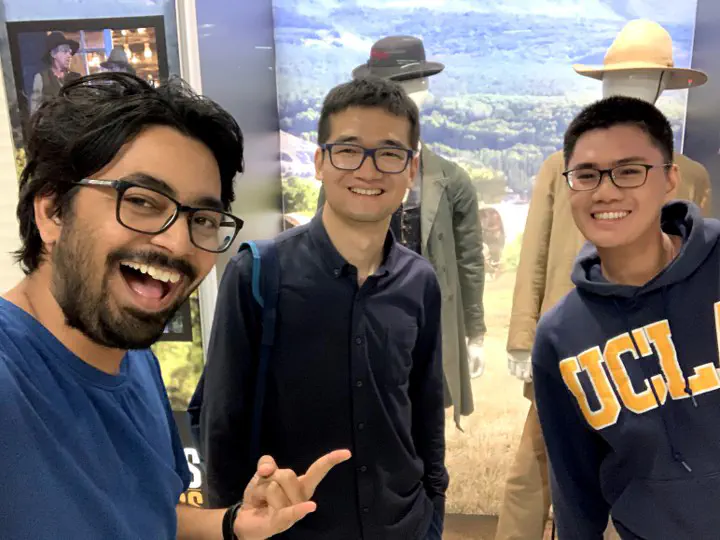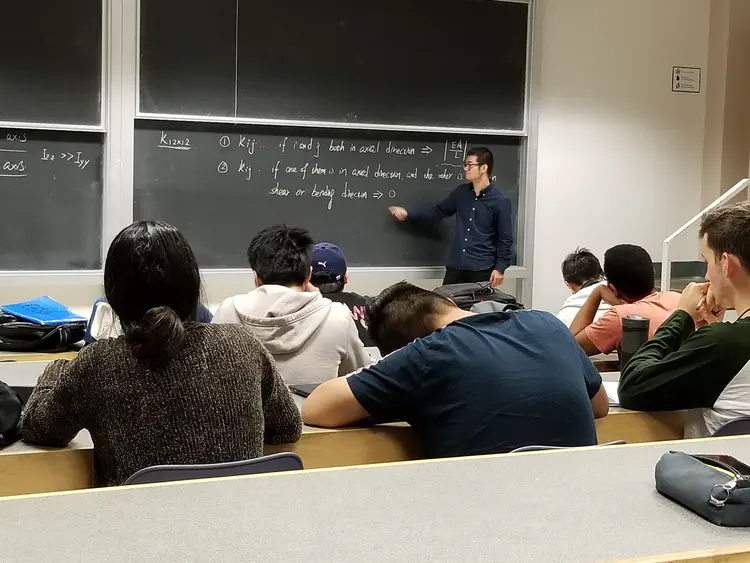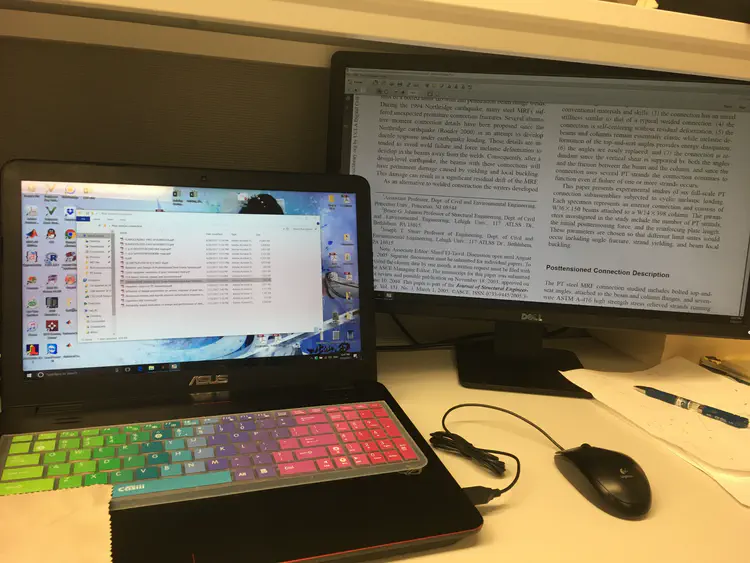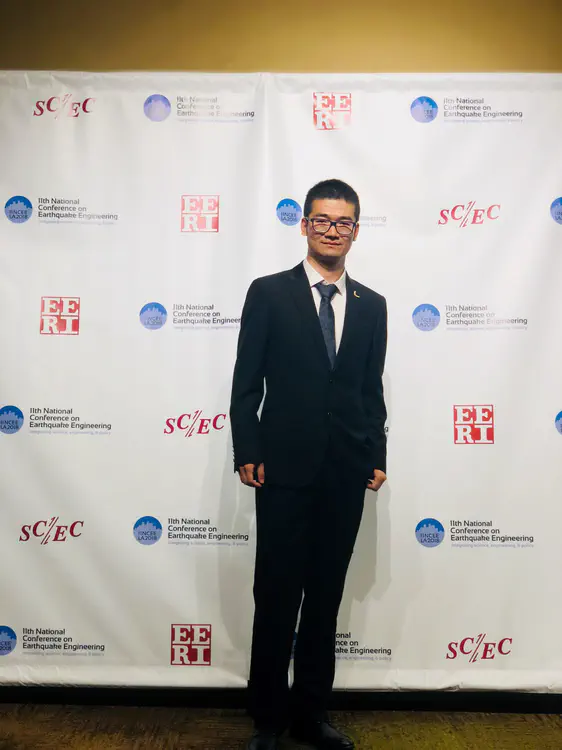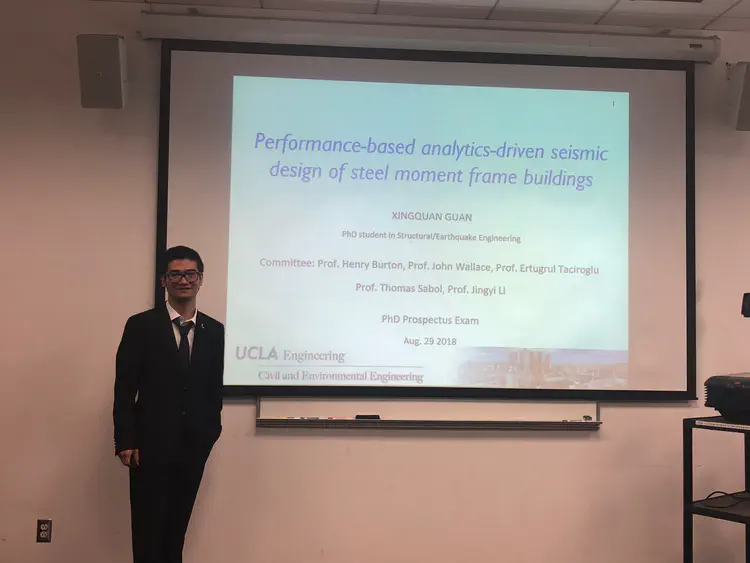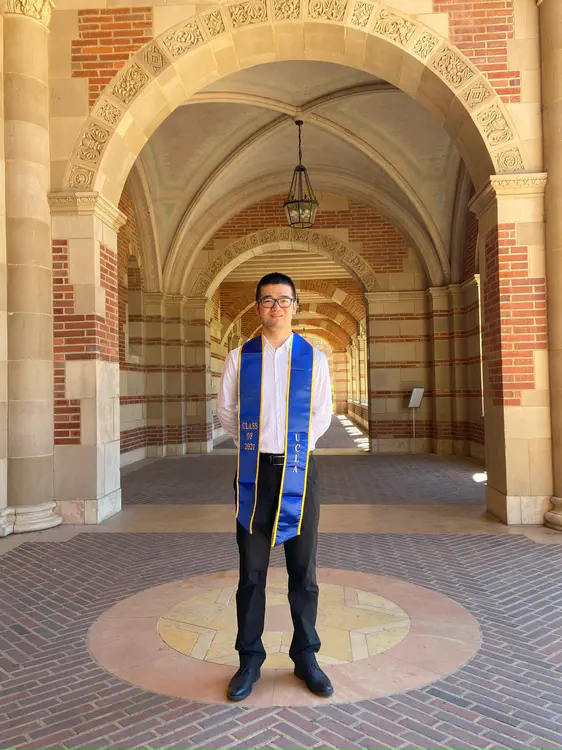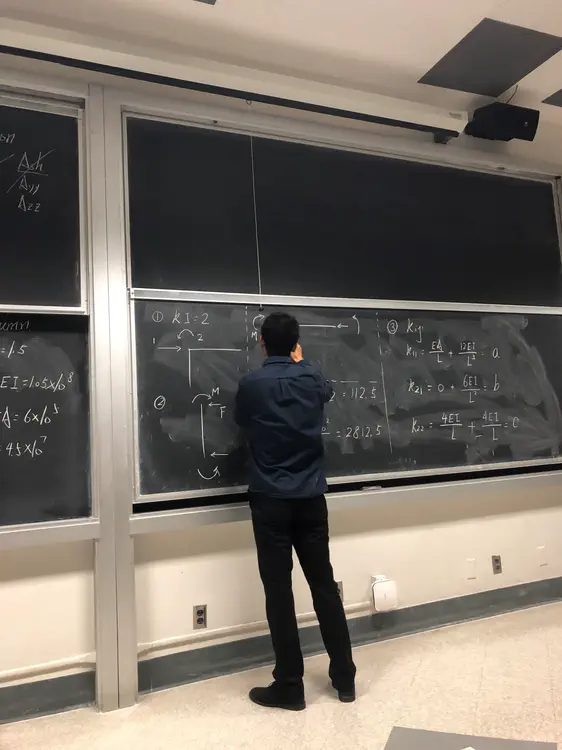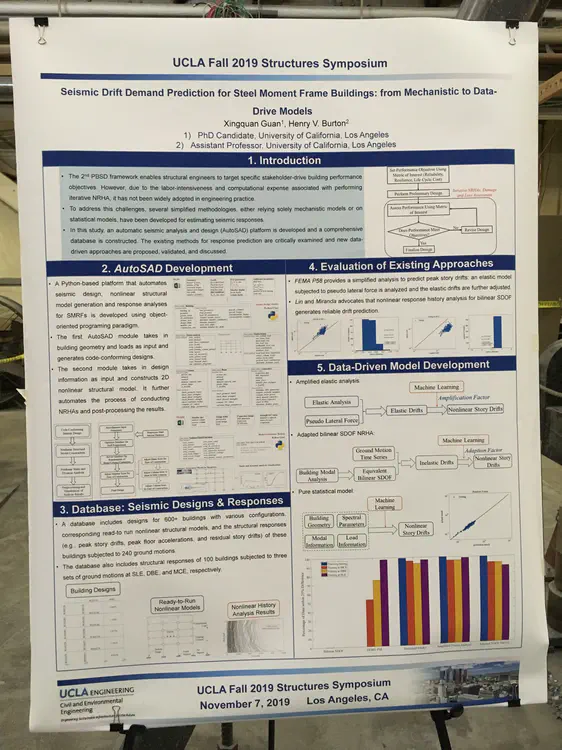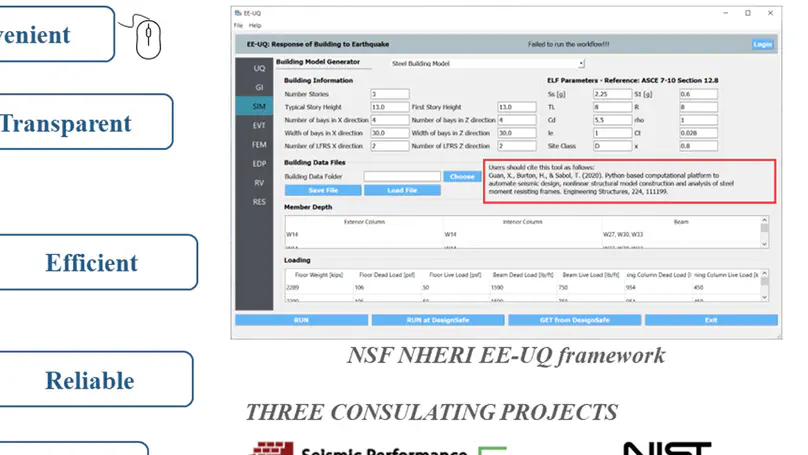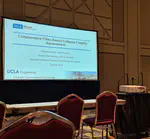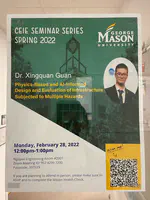Biography
Xingquan Guan is a Lead Data Scientist at ZEST AI. He has received a Ph.D. in Structural Engineering with a Minor in Statistics and Computer Science at the University of California, Los Angeles. His background broadly aligns with leveraging experimental tests, physics-based simulation, causal inference, and artificial intelligence to evaluate civil infrastructural systems’ resistance, response, and resilience.
- Multi-Hazard Risk Assessment
- AI-Informed Decision Support
- ML-Powered Design & Analysis
- Infrastructural Resilience
-
Ph.D. in Structural Engineering (Minor in Statistics and Computer Science), 2021
University of California, Los Angeles
-
M.Sc. in Earthquake Engineering, 2020
University of California, Los Angeles
-
M.Sc. in Structural Engineering, 2016
Huazhong University of Science and Technology
-
B.Sc. in Civil Engineering, 2013
Huazhong University of Science and Technology
Research Themes
Experience
- Migrated the machine learning modeling infrastructure from the file system to Amazon S3.
- Established risk profile ranking models to evaluate the financial reliability of credit applicants.
- Created 100+ AI-powered decision-support systems that have enabled 30+ credit unions to make more informed and efficient credit lending decisions.
- Contributed to the design and implementation of a modeling platform that automates the data processing, machine learning modeling, and perform analysis process.
- Optimized the modeling strategy tailored to the unique data characteristics (e.g., data size, duration, and feature distribution) of each credit union.
- Proposed and implemented a novel modeling strategy by combining foundation model and client-tailored model.
- Performanced probabilistic risk assessment on gas pipeline systems in Southern California, equipping stakeholders the ability to make informed decision on day-to-day maintenance and post-disaster repair activities.
- Created and implemented a novel collaborative filtering-based collapse fragility assessment approach inspired by recommender systems, which increased evaluation efficiency by 50% while maintaining high accuracy levels.
Recent Posts
Projects
Featured Publications
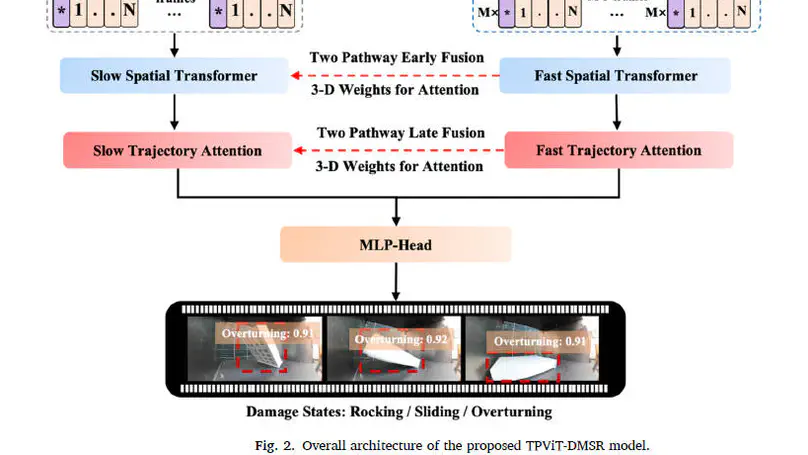
We have designed a video-comprehension model to analyze the moving trajectory and potential failure modes of nonstructural components during earthquakes, directly from video footage. We are hoping to leverage such a model to minimize the post-earthquake on-site inspections on nonstructural damages
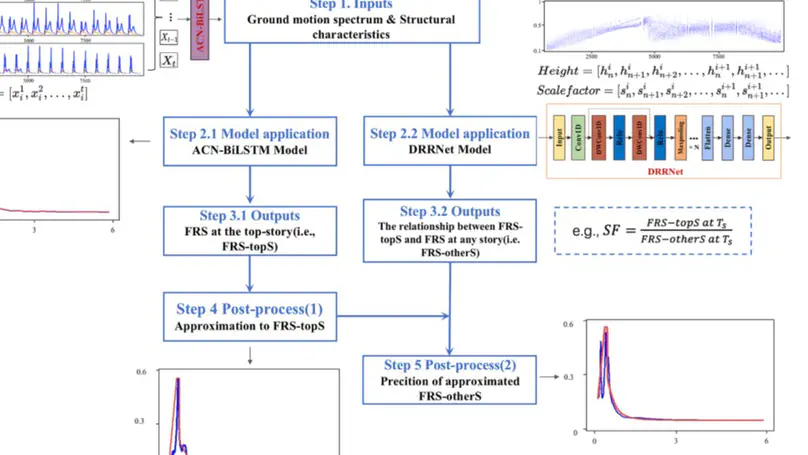
A bidirectional long short-term memory network model with an attention mechanism is developed to predict floor response spectrum.
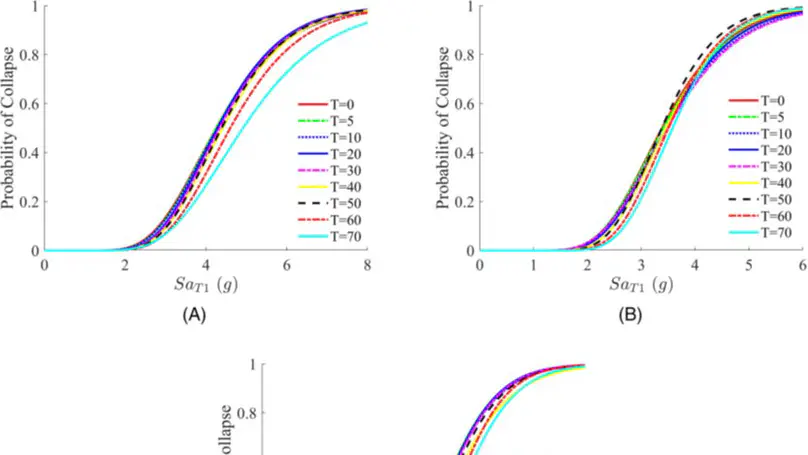
This paper presents a computationally efficient collapse fragility assessment approach that leverages the collaborative filtering (CF) technique. The proposed method randomly selects and runs a subset of the nonlinear response history analyses (NRHAs) required for the incremental dynamic analysis. The structural performance in the omitted cases is then estimated using CF, which requires significantly less time and effort than the nonlinear structural analysis. The NRHA-based and CF-generated building performances are then assembled to determine the empirical probability of collapse at each intensity, which is later fitted with a lognormal distribution to obtain the median collapse capacity and associated dispersion. The proposed approach is applied to three steel moment frames, demonstrating that it can reduce the required NRHAs by 50% while providing a reliable collapse fragility estimate for the selected ground motion sets (FEMA P695 44 far-field records and a site-specific record-set). The results from sensitivity analyses reveal that the proposed method is reasonably robust unless the input parameters are assigned extreme values.
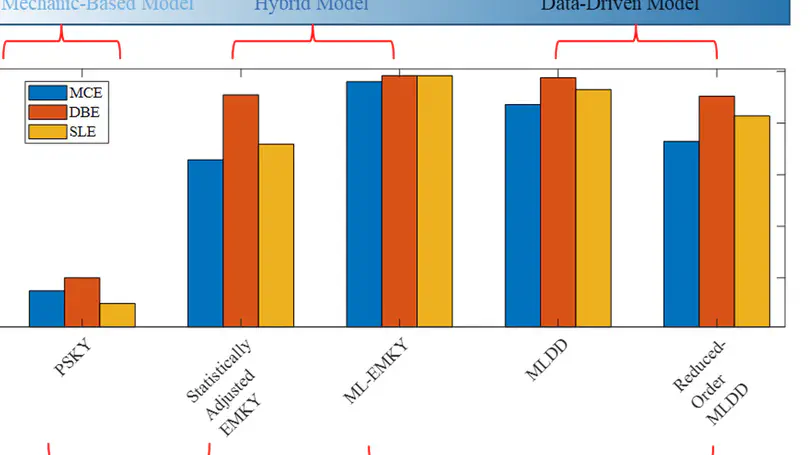
The existing and newly developed models for estimating building seismic drift demands are comparatively assessed in this study.
Recent Publications
Recent & Upcoming Talks
Contact
Feel free to reach out to me if would like to request copies of my published papers or if you would like to discuss any matter further.
